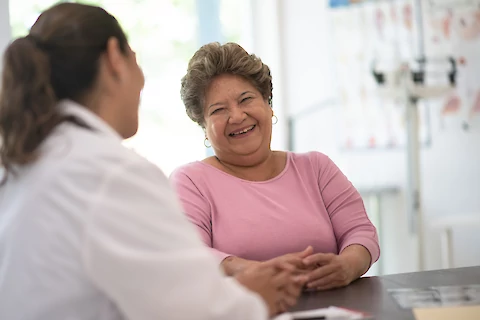
Regular breast cancer screening plays a critical role in early detection and improved treatment outcomes, especially in the senior population. However, initiating a conversation about this sensitive topic with aging parents or loved ones often presents challenges.
This blog post provides adult children and caregivers with a helpful guide on how to meaningfully broach the issue of breast cancer with seniors, both men and women, who may show reluctance to discuss it. We share valuable tips and strategies to encourage your loved ones to participate in their healthcare and get screened as necessary.
Understanding the Reluctance
Communicating about breast cancer might often meet with resistance from seniors, simply due to the fear or denial associated with the disease. Many seniors could find the mere thought of a possible cancer diagnosis too daunting or may view screenings as unnecessary or uncomfortable. Recognizing these sentiments and approaching the topic with empathy and understanding is essential.
How to Approach the Conversation
The first step to starting a conversation about breast cancer with seniors is choosing the right time and place. Ideally, you should choose a comfortable setting with minimal distractions. Begin gently, expressing your concerns and the importance of regular screenings in simple, supportive language.
Refrain from pressuring them into immediate action. Encouraging open dialogue is essential, allowing them to voice their fears or concerns. When faced with resistance or denial, patience is critical.
Keep the conversation focused on their well-being, reassuring them that regular screenings represent a proactive measure, not a preordained diagnosis. Encourage them to discuss the importance of the procedure with their doctor or healthcare provider. Trusting their doctor will most likely lead them to agree to schedule the mammogram.
Importance of Regular Screening
The current guidelines state that women 55 and older should get mammograms every two years, while men at high risk should discuss the screening frequency with their doctors. Regular screenings can detect breast cancer early when it is most treatable. Clarify misconceptions about the screening process to alleviate apprehensions. A mammogram is a quick, non-invasive X-ray that potentially saves lives by detecting early signs of cancer.
Encouraging Action
Encouraging your loved one to go for regular screenings is crucial. Consider these strategies:
- Work together to create a schedule that aligns with their routine.
- Offer your companionship for the appointments.
- Look for clinics that offer a comfortable, senior-friendly environment.
- Reinforce the idea that taking preventive steps is a self-care measure, not just a medical obligation.
We Can Help
Discussing breast cancer and encouraging regular screenings in seniors can be challenging, but it's crucial to preventive healthcare. By approaching the topic with sensitivity, patience, and understanding, you can encourage your loved ones to proactively take responsibility for their health.
If you live in Visalia, Hanford, Kings County, or Tulare County and need professional assistance to manage your loved one's health care needs, don't hesitate to contact us at Senior Helpers Visalia. We would love to talk to you about our services for seniors and their caregivers, like Personal Care and Wellness Watch.